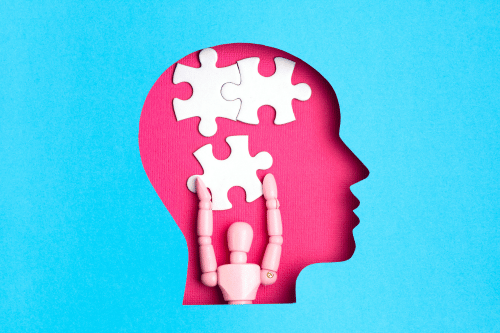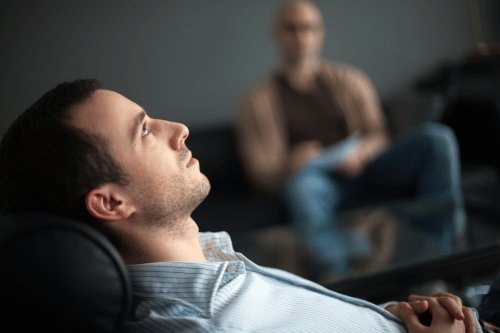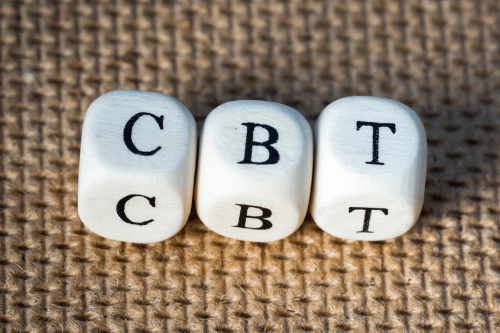11 Key CBT Techniques for Adolescents
Here are the most effective Cognitive Behavior Therapy (CBT) techniques that can empower adolescents to manage mental health symptoms and improve their lives:
Recognizing behavior patterns in adolescents is crucial for fostering healthier mental health outcomes.CBT plays a significant role in addressing various mental health conditions, making it an essential tool for both independent and combined therapeutic approaches.
1. Understanding Cognitive Behavioral Therapy (CBT)
Cognitive Behavioral Therapy (CBT) is a powerful form of psychotherapy that focuses on identifying and changing negative thought patterns and behaviors that contribute to mental health issues. At its core, CBT is based on the idea that our thoughts, emotions, and behaviors are interconnected. By altering one aspect, we can positively influence the others, leading to improved mental health and well-being.
CBT is a problem-focused and goal-oriented approach. It helps individuals understand how their thoughts and behaviors affect their mental health and equips them with practical coping skills to manage stress, anxiety, and other mental health symptoms. For adolescents, learning CBT techniques can be particularly empowering, as it provides them with the tools to navigate the challenges of growing up with greater resilience and confidence.
1. Cognitive Restructuring

Cognitive restructuring is one of the primary techniques in CBT. It teaches adolescents how to challenge and modify negative thinking patterns and behavior patterns that contribute to mental health disorders such as anxiety and depression. A CBT therapist helps teens identify cognitive distortions, such as “all-or-nothing thinking” or “catastrophizing,” and replace these thoughts with more balanced and positive thinking.
For example, if a teen believes, “I’ll never be good enough,” cognitive restructuring helps them reframe this thought to, “I can learn and improve with time.” This shift in perspective improves mental well-being and builds resilience against negative emotions.
2. Behavioral Activation
Behavioral activation addresses depressive symptoms by encouraging adolescents to engage in activities that bring joy, satisfaction, or fulfillment. Teens often withdraw from activities they once enjoyed due to depression, leading to increased isolation. Behavioral activation breaks this cycle by motivating teens to participate in enjoyable or meaningful activities, such as hobbies, social events, or physical exercise.
This technique plays a crucial role in promoting positive behaviors and reducing depressive symptoms by showing adolescents how small actions can positively impact their emotional health.
3. Exposure Therapy

Exposure therapy is effective for treating anxiety disorders, including generalized anxiety disorder (GAD) and post-traumatic stress disorder (PTSD). This technique involves gradually exposing adolescents to situations or stimuli that trigger anxiety in a controlled environment. With repeated exposure, teens learn that the feared situation is not as dangerous as they initially believed, helping to reduce anxiety symptoms over time.
This technique also teaches teens valuable coping skills for managing fear and stress, building their confidence in handling difficult situations independently.
4. Relaxation Techniques
Relaxation techniques are an essential part of CBT for managing anxiety and stress. Adolescents learn practices such as deep breathing, progressive muscle relaxation, and mindfulness to regulate their emotions during challenging situations. These techniques promote emotional balance by reducing physiological responses associated with stress, such as rapid heartbeat or muscle tension.
Practicing relaxation techniques regularly helps teens manage stress more effectively and contributes to overall mental well-being.
5. Problem-Solving Skills

Problem-solving is a core skill taught in CBT sessions to help adolescents cope with daily challenges. Adolescents often face academic, social, and personal issues that can feel overwhelming. Problem-solving techniques guide teens through breaking large problems into smaller, manageable steps.
Learning these skills reduces anxiety by equipping teens with practical tools to tackle challenges confidently. It also fosters independence, preparing them to handle future obstacles in a healthy way.
6. Coping with Negative Thoughts
A key focus of CBT for teens is teaching them how to cope with negative thoughts and emotions. Adolescents are prone to engaging in negative self-talk, which can affect their self-esteem and emotional health. By learning to recognize and challenge negative thinking, they can replace these thoughts with positive affirmations and realistic perspectives.
For example, instead of thinking, “I’m terrible at everything,” teens can learn to say, “I struggled with this task, but I can improve if I keep trying.” This shift in mindset helps them develop healthier self-esteem and emotional resilience.
7. CBT Homework Assignments
CBT therapists often assign homework between sessions to encourage teens to practice the skills they’ve learned. These assignments can include journaling, practicing relaxation techniques, or engaging in behavioral activation activities. Homework reinforces the progress made during therapy sessions, helping teens internalize the lessons and apply them independently.
These assignments also promote self-awareness by encouraging adolescents to reflect on their thoughts, emotions, and behaviors.
8. Self-Awareness and Emotion Regulation
CBT focuses heavily on helping adolescents develop self-awareness and regulate their emotions effectively. Teens learn to identify triggers for negative emotions, such as frustration, anger, or sadness, and develop strategies to manage them. Developing emotional regulation skills allows them to respond thoughtfully to challenges rather than reacting impulsively.
CBT empowers teens to take ownership of their mental health journey, teaching them how to manage stress and cope with difficult emotions.
10. Building Self-Esteem and Confidence
Building self-esteem and confidence is a crucial aspect of cognitive behavioral therapy for teens. Adolescents often struggle with negative thought patterns and behaviors that can erode their self-esteem, making it difficult to face social situations, academic pressures, and emotional challenges. CBT helps teens identify and challenge negative self-talk, replacing it with a more positive and realistic self-view.
For instance, a teen who constantly thinks, “I’m not good enough,” can learn through CBT to reframe this thought to, “I have strengths and can improve with effort.” This shift in perspective fosters a healthier self-image and builds confidence in their abilities. As teens develop a more positive self-view, they become better equipped to handle life’s challenges, leading to improved self-esteem and overall mental well-being.
11. Goal Setting and Achievement
Goal setting and achievement are vital components of cognitive behavioral therapy for teens. Setting realistic and achievable goals provides a sense of direction and purpose, which is essential for mental health and well-being. CBT helps teens break down their goals into manageable steps, develop a plan to achieve them, and stay motivated throughout the process.
By using CBT techniques such as cognitive restructuring, problem-solving skills training, and self-monitoring, teens can stay focused and track their progress. Achieving goals, no matter how small, builds confidence and a sense of accomplishment. This positive reinforcement encourages teens to continue setting and reaching new goals, fostering a cycle of success and improved mental health.
CBT for Common Mental Health Disorders in Adolescents
CBT is highly effective for treating various mental health conditions, including anxiety disorders, depressive symptoms, and behavioral disorders. Adolescents with mental health problems often struggle with cognitive distortions that negatively impact their behavior and emotional well-being. By working with a licensed therapist, teens can address these issues through structured therapy sessions focused on identifying and shifting negative thinking patterns.
1. Anxiety Disorders
CBT techniques such as exposure therapy and relaxation techniques are particularly effective for treating anxiety symptoms. Adolescents with anxiety disorders often experience irrational fears that interfere with their daily activities. Through CBT, they learn to confront these fears gradually and replace negative thoughts with positive thinking patterns.
2. Depression and Depressive Disorders
Behavioral activation and cognitive restructuring are essential techniques for managing depressive disorders. Adolescents with depression may struggle with low motivation and negative emotions. CBT helps them re-engage with positive activities and develop healthier thinking patterns, which reduces depressive symptoms over time.
3. Behavioral Disorders and Social Skills Development
CBT also addresses behavioral issues, such as impulsivity or defiance, by teaching adolescents how their thoughts and behaviors are connected. Therapy sessions often focus on developing social skills, promoting positive behaviors, and encouraging healthy lifestyle adjustments.
The Role of Professional Counseling in CBT
Working with a licensed CBT therapist is essential for achieving positive outcomes in treating mental health disorders. Professional counseling provides adolescents with a safe environment where they can explore their thoughts and emotions without judgment. A CBT therapist helps them develop CBT skills that empower them to manage stress, build self-esteem, and navigate mental health challenges.
Therapy sessions also provide opportunities for positive feedback, reinforcing the progress teens make throughout their mental health journey. Family therapy may be incorporated when appropriate, allowing parents to support their child’s mental health recovery.
1. Finding a Teen Therapist Specialized in CBT
Finding a teen therapist specialized in cognitive behavioral therapy (CBT) is crucial for effective treatment. A skilled CBT therapist can help teens identify and change negative thought patterns and behaviors, develop coping skills, and work towards achieving their goals. When searching for a CBT therapist, consider the following factors:
Experience with Teens: Ensure the therapist has experience working with adolescents and understands the unique challenges they face.
Training and Certification: Look for a therapist who is trained and certified in CBT, ensuring they have the expertise to provide effective treatment.
Availability and Flexibility: Consider the therapist’s availability and whether their schedule aligns with your needs.
Comfort and Rapport: It’s essential that the teen feels comfortable with the therapist, as a good rapport is key to successful therapy.
Insurance and Payment Options: Check if the therapist accepts your insurance or offers payment plans that fit your budget.
By finding the right CBT therapist, teens can receive the support and guidance they need to manage mental health issues, develop coping skills, and achieve their goals. This professional partnership is a critical step in their mental health journey, providing a foundation for long-term success and well-being.
Conclusion
CBT techniques for adolescents offer practical solutions for managing anxiety, depression, and other mental health disorders. Through techniques such as cognitive restructuring, exposure therapy, and relaxation exercises, adolescents learn to shift negative thought patterns, develop healthy behaviors, and build emotional resilience.
CBT empowers teens to take control of their mental health journey by teaching them essential coping skills and promoting positive thinking. With the guidance of a licensed therapist, adolescents can achieve significant improvements in their mental well-being and develop the tools needed for long-term success.
If you’re seeking effective treatment for mental health disorders in adolescents, contact Adolescent Mental Health today to learn more about how Cognitive Behavioral Treatment can help.









